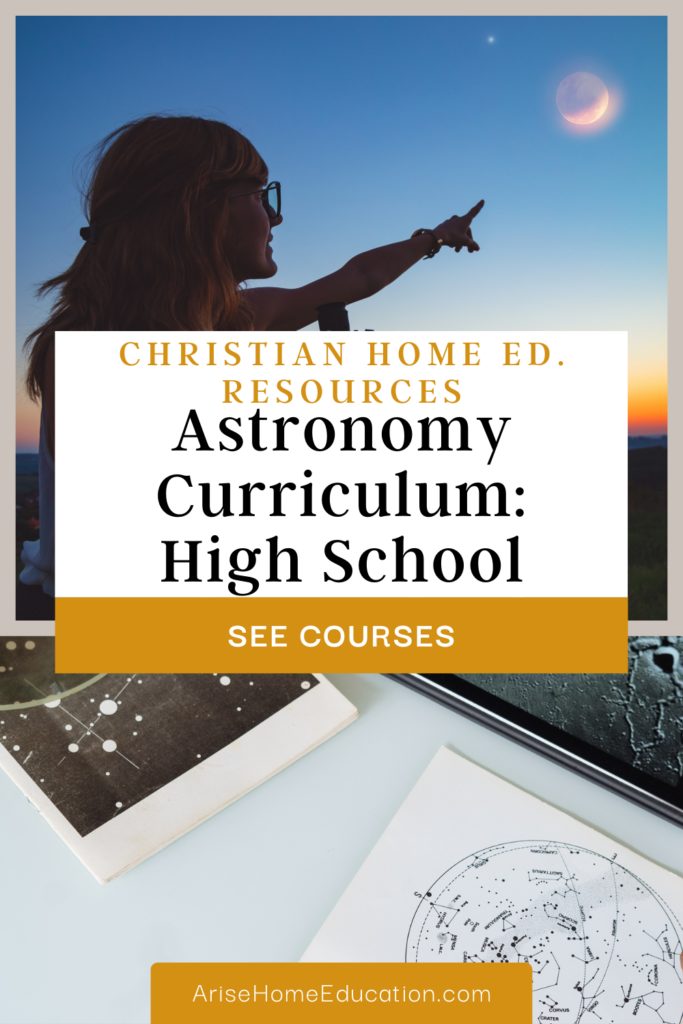
Astronomy is a subject that is filled with wonder. As a science, it allows a child to be emersed in the wonder of creation. Practically, it brings together physics, history, mathematics, earth sciences, and philosophy. Astronomy is a science that leads naturally to the questions of origins and our place in the Universe. Many Christian parents can shy away from Astronomy as a subject. They may be fearful that the ideas are anti-God, or that it is too akin to astrology. Let’s take a look at several ideas about astronomy curriculum for high school students and explore home education resources that Christian families can enjoy.
Astronomy or Astrology
Astronomy is a science concerned with the study of space, it is practised within the confines of scientific thinking, and the laws of nature. Astrology is an ancient belief in the power of the stars to determine our actions on earth. Therefore, it is a form of divination. Astrology is not something Christians should be dabbling in. It is true early stargazers also practised astrology; in the same way early chemists were alchemists. This resulted in terms that are used in astrology to be in astronomy. For example the names of the constellations that form the zodiac. But a child studying the science of astronomy is not practising astrology or divination.
The Science of Astronomy
Astronomers use telescopes to understand the workings of the heavens. The work of great thinkers like Copernicus, Kepler, Galileo, and Isaac Newton unlocked the precision of the Solar System. The mathematical equations of Kepler and Newton explain the motion of the Solar System. We see through their work such beauty and design which makes us think of a Creator. Today the powerful instruments available are unlocking the mysteries of neutron stars, black holes, dark matter, and beauty behold the wildest imaginations of Galileo when he first looked to the heavens in his telescope.
Faith & Science Podcast with Arise Tutors Emma Cumming & Hannah Smith
A Free Astronomy Sample Lesson Just For You!
-
Product on sale
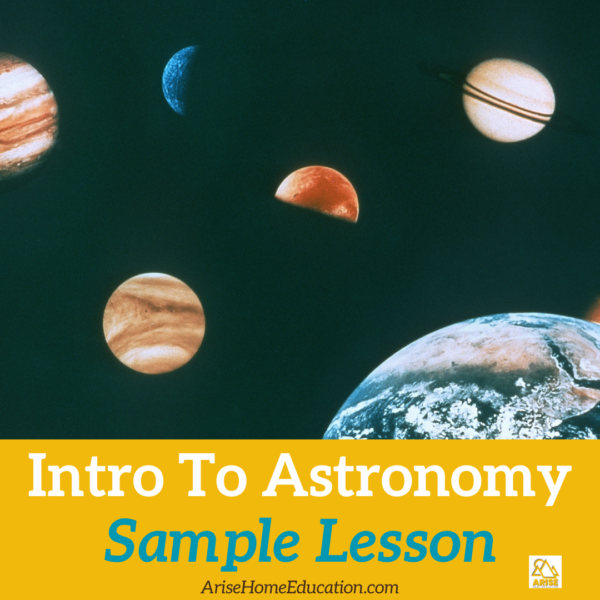 Astronomy Sample Lesson: Intro to Astronomy CurriculumOriginal price was: £9.00.£0.00Current price is: £0.00.
Astronomy Sample Lesson: Intro to Astronomy CurriculumOriginal price was: £9.00.£0.00Current price is: £0.00.
Basics of Astronomy
Finding an astronomy curriculum for high school students in the UK that will unlock the wonders of space can set your child on a lifelong love of space. Perhaps your child is already hooked on space, and you want to find a curriculum to build on their knowledge and take them further. Find a curriculum that firstly helps them navigate the night sky. Being able to pick out key features in the night sky, and understand how the sky changes through the seasons is key to going further with Astronomy.
Even in a more urban environment brighter naked-eye objects like the moon, and bright stars like Rigel are visible. Many of the planets like Jupiter, Mars, and Venus can be found easily if you know when and where to look. A good basic astronomy curriculum will help you navigate this. If you live near an observatory it is worth finding out if they do beginner stargazing sessions. Then a starry night will forever be a thing of wonder.
Astronomy High School Curriculum UK
For high school students, building on this basic astronomy foundation with a deeper understanding of the science underpinning the cosmos is important. Having a look at how stars are powered by nuclear fusion, and the science of our sun. Studying the sun gives insight into all stars. High school students will understand why studying the light from individual stars reveals the chemical composition of the star that emitted it. They can use a mathematical explanation to understand the orbits of planets and the expansion of the universe through the study of the red shift of galaxies.
The actual maths skills a high school student is already learning will be applied to the understanding of space. Students may want to find an Introduction to Astronomy course, or for those who are passionate, there is a GCSE astronomy course companion workbook available. Astronomy and Astrophysics are both potential degrees at university. For a student looking to make a career out of space they will need to be strong in mathematics and physics.
Websites for Astronomy
There are a number of great websites for kids in primary, secondary, or high school who love space and all things astronomy oriented.
- NASA: NASA have a wealth of knowledge available, as well as resources for kids of all grade levels. They also have websites for their telescopes. You can see the images from the Hubble Space Telescope or the new James Webb Telescope.
- Stellarium: This website allows you to see what the night sky is like in your location live. It is a fantastic stargazing tool. You can use it on your desktop computer, or there is an app to download onto your phone. This is a great astronomy curriculum for high school software addition. It is brilliant. My son described it as, “so cool!”
- National Schools Observatory: This fantastic educational website has great resources for kids to explore space and space science.
- James Webb Telescope: NASA’s latest telescope is re-writing our understanding of space. The images produced reveal in great detail the wonders of the Solar System, the Milky Way Galaxy, as well as deep space objects.
Easy Ideas for Star Gazing: Astronomy Curriculum for High School (and younger)
Kids of all ages will enjoy these home education resources that are easy to implement.
- Create a stargazing journal. This is like a nature journal. But it will document what you observe. Make notes of the everyday stars you discover, as well as special astronomical events like a lunar eclipse or a comet.
- Over the course of a month watch the changing phases of the moon. Sketch the lunar phases.
- Try to learn a constellation a month. Research the mythology behind the constellation. This helps the child remember it, if they have a story to tell.
- If there is a meteor shower, wrap up warm, make hot chocolate, take blankets outside, lie back, and enjoy the beauty.
- The Night Sky Almanac is a great book to help you plan your stargazing. This tells you what can be seen in the night sky and when.
- The Stargazers Guide to the Night Sky is a wonderful book to help you go deeper in stargazing. If you are looking to make the leap from naked eye astronomy to using telescopes, this is for you. Dr Jason Lisle is an astrophysicist and creationist.
- Binoculars or a monoscope can enhance your stargazing and is a good step towards a telescope. A quality monoscope can even allow you to see the rings of Saturn and the Galilean moons of Jupiter (both when conditions are favourable).
Are Arise Live Classes A Good Fit For Your Teen?
Grab a live lesson bundle and learn about the course, the tutor, and the weekly homework load.
Astronomy Curriculum: High School | UK Home Education Resources
Is your secondary-aged student interested in Astronomy? Look no further for an astronomy curriculum for your high school child. Let them begin studying space using the Introduction to Astronomy by Arise Home Education.
Stargazing as a child has developed a lifelong passion for astronomy in my life. I never tire of looking up to the heavens and gazing at the glorious sight of a dark sky filled with stars. It has also developed my curiosity to understand more about creation.
More information: What To Look For in a High School Astronomy Curriculum
Podcast
More Live Science Courses
-
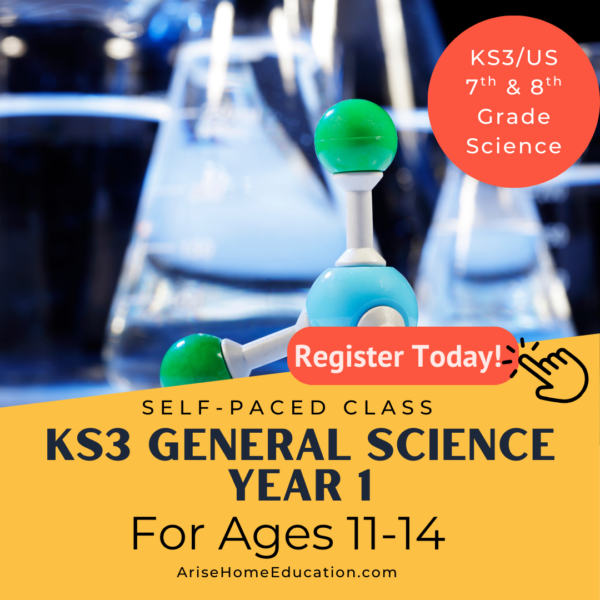 Pre-iGCSE Science Year 1 for Ages 11-14 (KS3)£100.00
Pre-iGCSE Science Year 1 for Ages 11-14 (KS3)£100.00 -
 Astronomy Curriculum: A Self-Paced Introduction for High School£100.00
Astronomy Curriculum: A Self-Paced Introduction for High School£100.00 -
 Cambridge Combined Science Year 1£360.00
Cambridge Combined Science Year 1£360.00 -
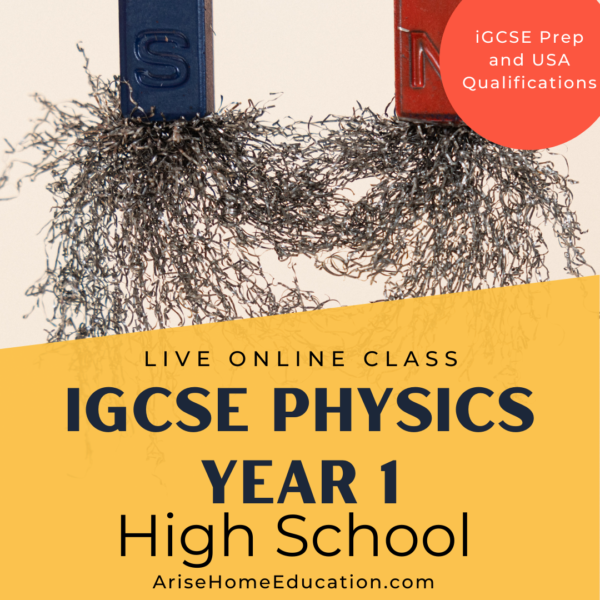 iGCSE Physics Year 1£360.00
iGCSE Physics Year 1£360.00 -
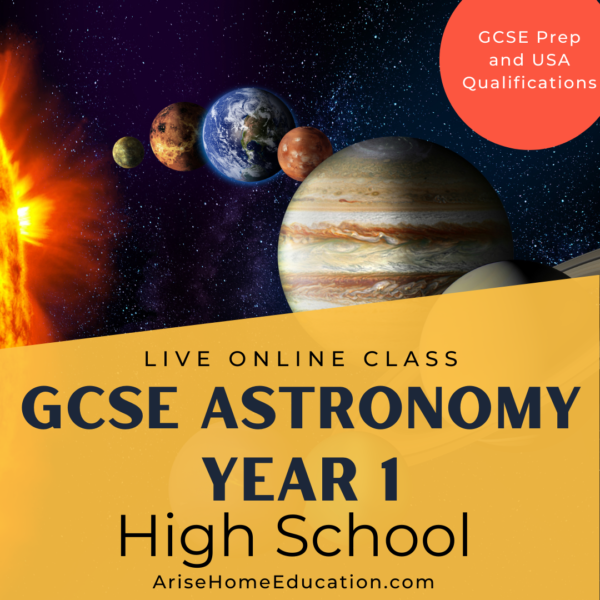 High School GCSE Astronomy: Year 1£360.00
High School GCSE Astronomy: Year 1£360.00 -
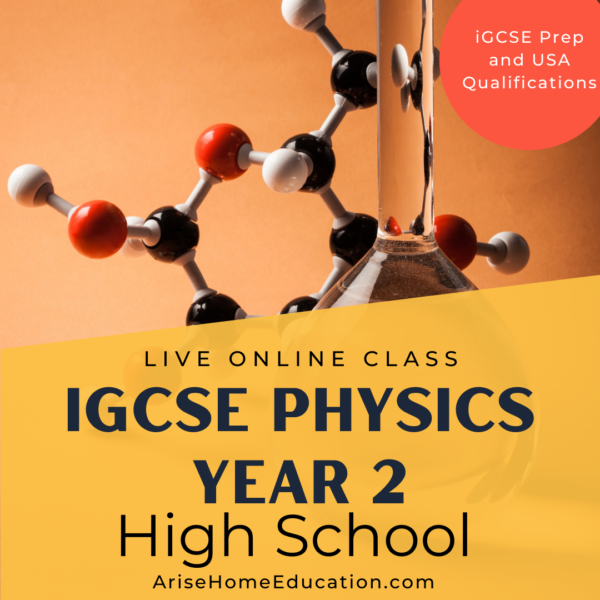 iGCSE Physics Year 2£360.00
iGCSE Physics Year 2£360.00 -
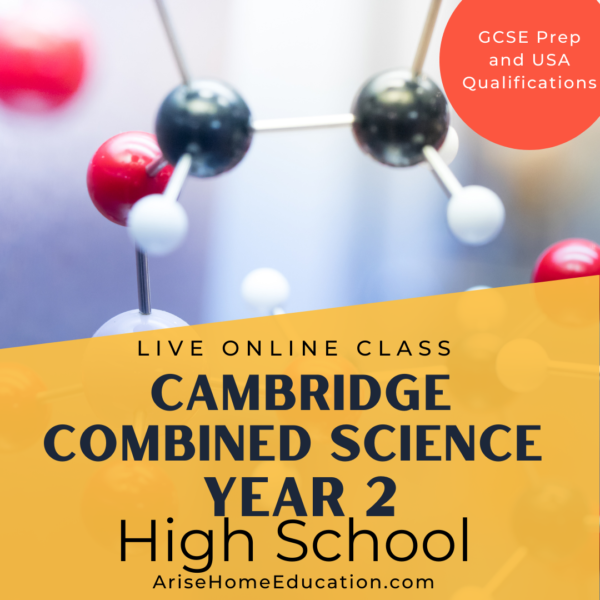 Cambridge Combined Science Year 2£360.00
Cambridge Combined Science Year 2£360.00 -
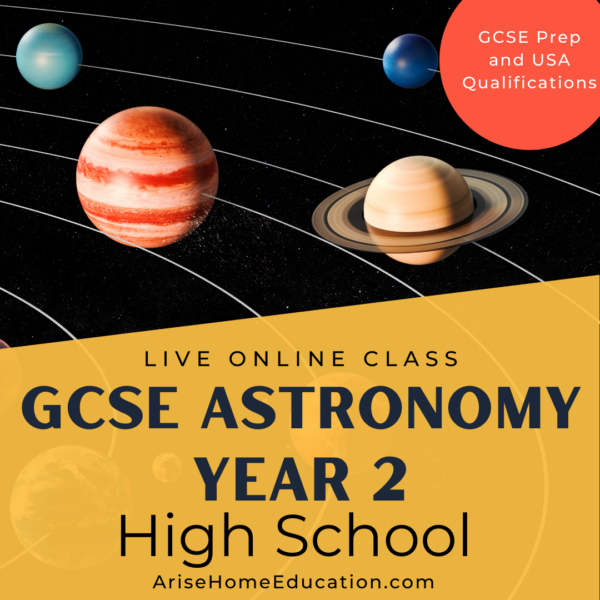 GCSE Astronomy: Year 2£360.00
GCSE Astronomy: Year 2£360.00 -
Product on sale
 Astronomy Sample Lesson: Intro to Astronomy CurriculumOriginal price was: £9.00.£0.00Current price is: £0.00.
Astronomy Sample Lesson: Intro to Astronomy CurriculumOriginal price was: £9.00.£0.00Current price is: £0.00.
More Self-Paced Courses from Arise Home Education
-
 FORM Physical Education & Health Curriculum£155.00
FORM Physical Education & Health Curriculum£155.00 -
 Pre-iGCSE Science Year 1 for Ages 11-14 (KS3)£100.00
Pre-iGCSE Science Year 1 for Ages 11-14 (KS3)£100.00 -
 Astronomy Curriculum: A Self-Paced Introduction for High School£100.00
Astronomy Curriculum: A Self-Paced Introduction for High School£100.00 -
 Self-Paced Contextual British History: Victorian Era£80.30
Self-Paced Contextual British History: Victorian Era£80.30 -
 Self-Paced British History: Modern Era£80.30
Self-Paced British History: Modern Era£80.30 -
 Self-Paced Contextual British History: Georgian Era£80.30
Self-Paced Contextual British History: Georgian Era£80.30 -
 World Geography The Americas, The Caribbean & Oceania | Self Paced High School£80.30
World Geography The Americas, The Caribbean & Oceania | Self Paced High School£80.30 -
 World Geography Europe | Self Paced High School£80.30
World Geography Europe | Self Paced High School£80.30 -
 World Geography: Asia | Self Paced High School£80.30
World Geography: Asia | Self Paced High School£80.30
More Science Information And Resources
- Astronomy Curriculum For High School: A Faith-Based Guide
- What To Look For in a High School Astronomy Curriculum
- Science Activities for Teens: 12 Summer Vacation Ideas

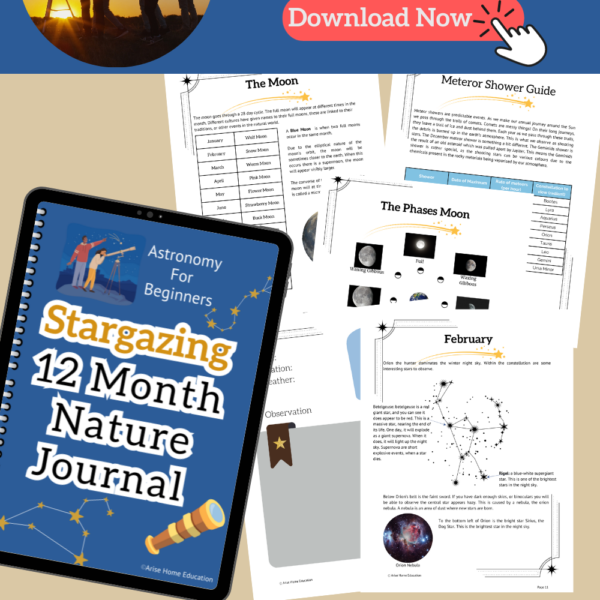

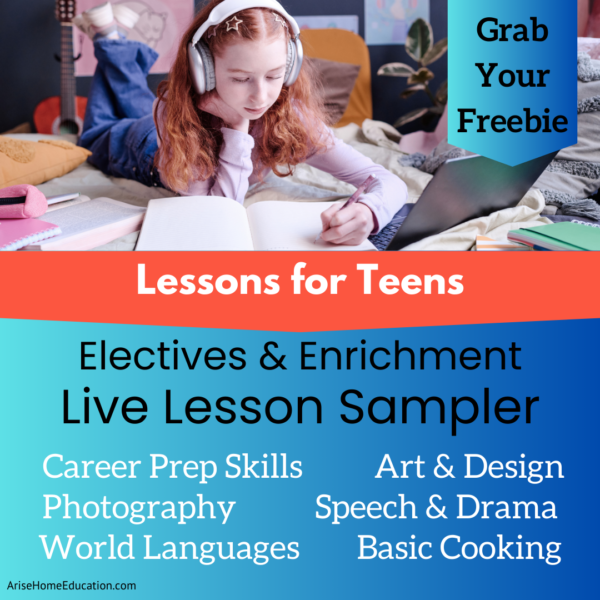
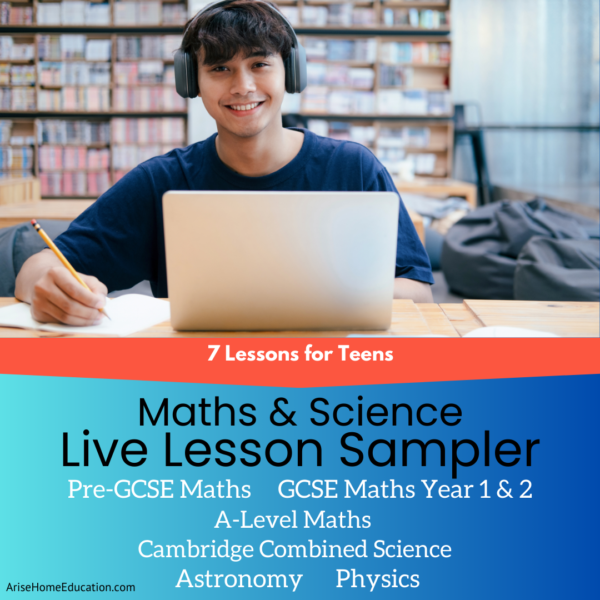
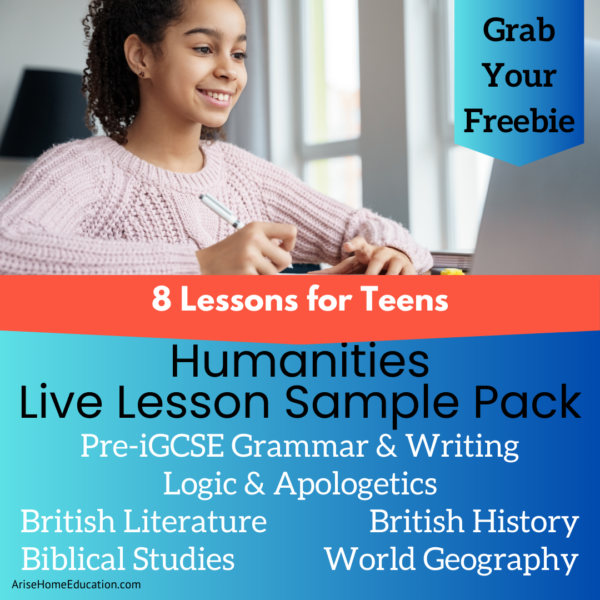

1 thought on “Astronomy Curriculum: High School | Home Educators Resources”
Comments are closed.